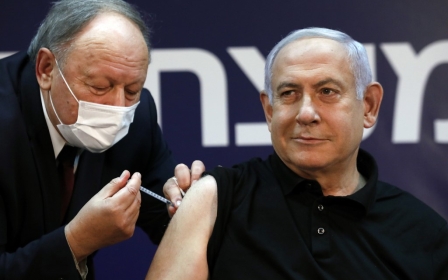Israel detects new Covid-19 strain, health ministry says

Israel has detected four cases of a new Covid-19 strain, a highly infectious variant of the virus that has emerged in Britain, the Israeli health ministry said on Wednesday.
Three of the cases were returnees from England and are isolating at a hotel designated as a coronavirus quarantine facility, the health ministry said. The fourth case is under investigation, it added.
Both London and the World Health Organisation have said the strain is believed to be 70 percent more infectious than the original strain of the virus.
Israel launched a vaccination campaign on Saturday and has vaccinated 70,000 out of its nine million population, health ministry data shows.
Having secured vaccines from drugmakers Pfizer, Moderna and AstraZeneca, Israel expects to have enough doses by the year's end for the 20 percent of its population most prone to coronavirus complications.
The massive vaccination drive, said to be the biggest in Israel's history and titled "Give a Shoulder," will leave out millions of Palestinians living under Israeli control despite a recent spike in cases and deaths stemming from the virus.
It will, however, include Jewish settlers who are Israeli citizens living deep inside the West Bank, but not the territory's 2.5 million Palestinians.
Israel has reported 383,385 coronavirus cases and 3,136 deaths. It has imposed two national lockdowns and may soon order new sweeping restrictions amid an uptick in new cases.
The Palestinian Authority has reported more than 85,000 cases in the occupied West Bank, including more than 800 deaths.
Palestinians will have to wait for the cash-strapped Palestinian Authority, which administers parts of the West Bank, to provide them with vaccinations.
Middle East Eye propose une couverture et une analyse indépendantes et incomparables du Moyen-Orient, de l’Afrique du Nord et d’autres régions du monde. Pour en savoir plus sur la reprise de ce contenu et les frais qui s’appliquent, veuillez remplir ce formulaire [en anglais]. Pour en savoir plus sur MEE, cliquez ici [en anglais].



